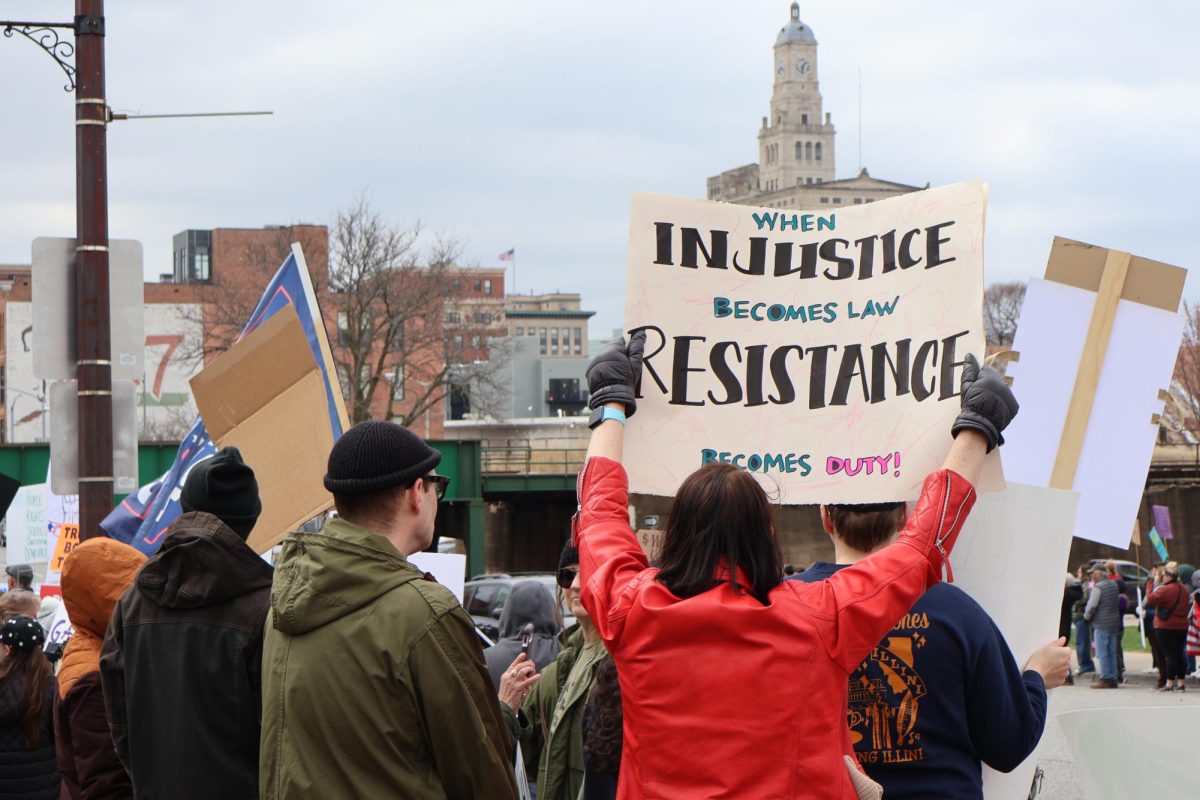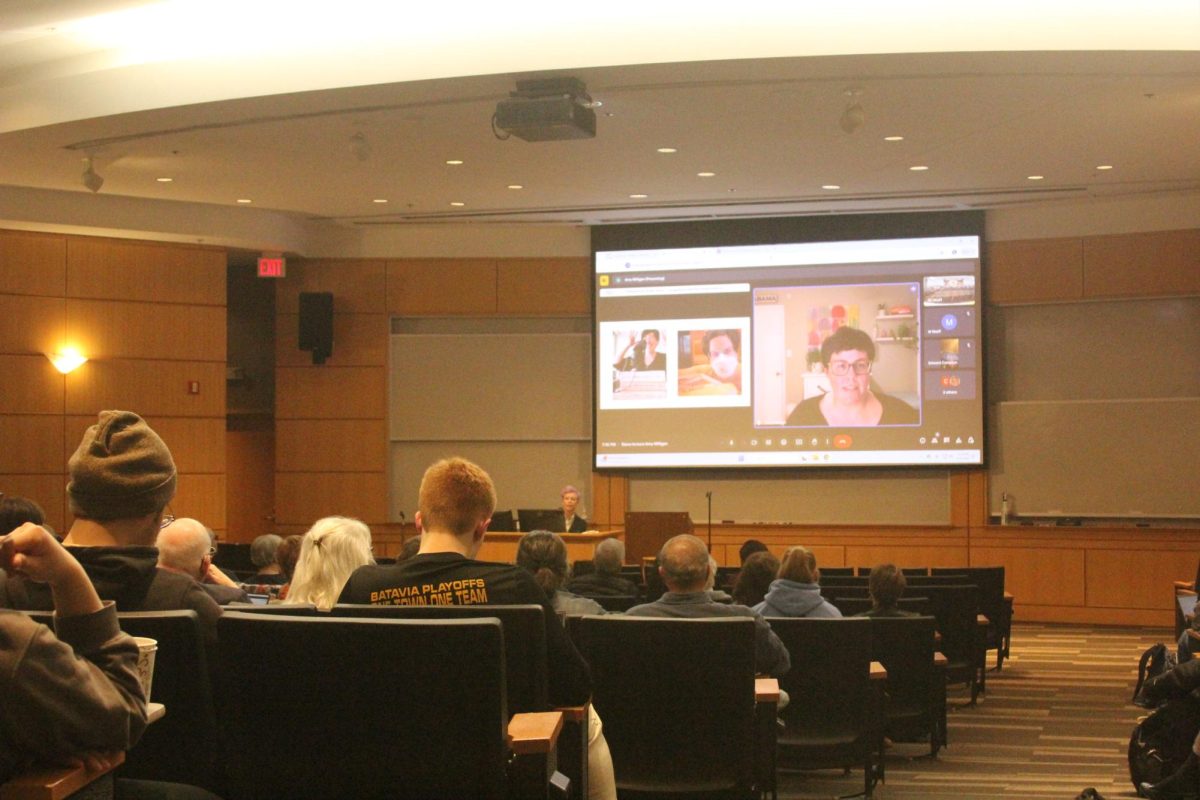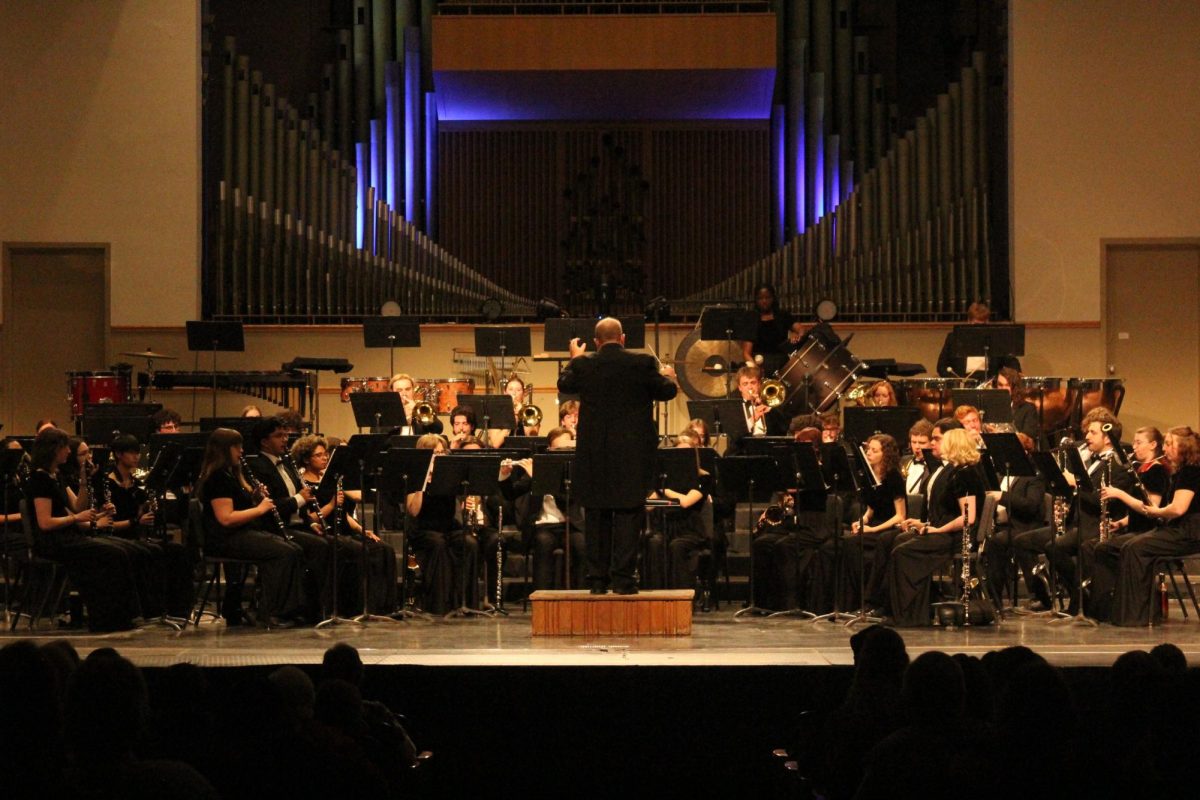The Augustana Historical Society hosted its Spring Lecture on April 2, featuring guest speaker Rebecca Hopman. The talk “Lydia Olsson and the Women of Augustana in the 1890s” explored the lives of Lydia Olsson and other influential women at the college, drawing on stories from Olsson’s diaries.
Olsson (1874-1958) was the daughter of Augustana’s third president, Pastor Olof Olsson, who served as president from 1891 to 1899.
Olsson left behind a total of five diaries detailing her lived experiences in the 1890s and her time at Augustana. These texts are found in the college’s Special Collections with the Olof Olsson family papers.
Hopman ‘11 is a Genealogy Services Librarian for the Wisconsin Historical Society and presented her research on Olsson’s life to the campus community. During her senior year at Augustana, Hopman said she first came across Olsson’s diaries through her job in Special Collections, which led to her further work and focus on Olsson’s life.
“[Olsson] was writing from about 1892 to 1896, [which] is when these particular diaries span, and she was in her late teens and early 20s,” Hopman said.
Olsson was the youngest daughter of Olof and Anna Lisa Olsson. Originally from Kansas, Olsson and her family moved to Rock Island in 1876 so that her father could become a religion professor at Augustana, Hopman said. All three Olsson daughters also attended the college.
From then on, Olsson spent most of her time near or on campus, with her later working at the college’s Thomas Tredway Library for 29 years. It was around this time, Hopman said, that the women of Augustana started to make their presence known on campus.
“Ideals were floating around about how a woman should act and be in the world,” Hopman said. “In the United States in the 1890s, there was a transition between an older way that women were expected to behave and a newer way.”
Hopman said many of the college’s women participated in athletic events and choir, breaking stereotypes about the role of women in society. Women also began working more outside of the home, such as Olsson in the library, she said.
Back then, Hopman said women were expected to exist mainly in the home, tending to children and their husbands. However, Hopman said many Augustana women were influenced by Swedish ideals, with many of them born in Sweden or raised by Swedish parents.
“You’ve got these two opposing ideals that the women of the Augustana College campus are kind of stuck in the middle of this transition period,” Hopman said. “Swedish women actually had a lot more rights than American women at this time, so you’re kind of seeing this move from the early 19th century throughout to give women more rights.”
In 1894, she said a group of women established the Augustana Endowment Society to raise money in support of the college. Augustana Endowment Society Historian Janet Moline ‘66 said the program was founded by wives of former Augustana professors in the 80s and only included women until roughly five years ago.
She said the college’s endowment society is the oldest organization in the Quad Cities area and still helps fund the college to this day. Moline is also a part of the Augustana Historical Society and attended Hopman’s lecture.
“It struck me to hear [that] back then, in the 1890s, women were struggling between traditional expectations and the new way,” Moline said. “Here was a reminder that struggle, that tension for women, has been going on [for] a long time. It’s amazing how they show up in different ways.”
Associate Professor of History Brian Leech serves as the president of the college’s historical society and said the group holds events like this once a semester to showcase the history of Augustana. He said the society is made up of past and present Augustana students and faculty as well as local historians. Their website states membership is $5 for students and $35 annually for members.
“I think [the lecture] allows for us to have a stronger, clear education for all students today,” Leech said. “This subset of young women in the 1880s-90s helped kind of shape a more independent womanhood for all women across America.”
Senior Katie Sanders attended the talk and said the event piqued her own interest in relation to the advent of industrialization and how this affected women in their daily lives. Sander majors in history and sociology and anthropology and is co-president of the History Club on campus.
“It was really cool to know that the women acted very early on in the history of this college and that they never went away,” Sanders said. “Despite the fact that, legislatively, it took a very long time to get where we are.”



































































































